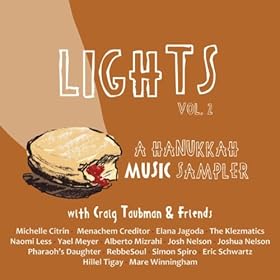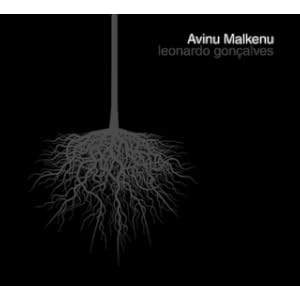There is an old proverb that says “Sometimes silence is the best answer.”
This is a hard one for me. I like to talk. Hang out with me for a few minutes and you learn this.
Ask my wife. She has a hard day at work…maybe something didn’t go as planned. What’s my first response? To ask questions and and tell her what she can do to try to correct it now or at least make sure it doesn’t happen again. Good intention? Sure…but is it always the right thing to do???
Our society is getting louder and louder. People are increasingly talking about everything and nothing all the time with little relief. You can’t turn on the TV without being inundated by talking heads talking over each other…politics, business, sports, celebrities, court cases…So instead you turn on the radio: politics, business, sports, celebrities, court cases…and maybe a little music thrown in there.
You don’t even have to turn on the tv or radio. Go online! You’ll find plenty of people sounding off on every subject imaginable.
Obviously, I am not suggesting that talking is wrong. Some situations require it, but there is a balance to be found…I’m talking about the wisdom of speaking carefully and thoughtfully and the discipline of silence. Knowing when to talk and when to be silent.
Even in our weekly service here we have a time of silence when we recite the Amidah.
“Sometimes silence is the best answer.”
Silence is generally something we try to avoid. We aren’t comfortable with it. Think about the awkward silences we’ve each encountered and how often our response is to say something. We have a need to break the silence and perhaps too often we ignore the actual need FOR silence.
It’s traditional when visiting people sitting shiva to wait for the mourners to say something…and if nothing is said to simply sit there in silence. My mom calls this “sitting in the mud together”. Sometimes words are not appropriate and harm more than they help.
In his
blog Rabbi Dr. Michael Schiffman wrote this:
"When my grandmother passed away, we were sitting “Shiva” (traditional mourning period in Judaism) at my parent’s house. One of my grandparent’s neighbors came to “cheer up” my grandfather. She sat with him and told him he was very lucky to have had my grandmother for so long and that she was not in pain anymore and in a better place. My dad and I were in the kitchen listening in, and I was relating to my dad what our “visitor” was saying. I told him she was making my grandfather cry. My father asked what we should do. I suggested throwing her off the balcony, but my dad shook his head. I went in and said we had to get ready for something and told our visitor she needed to go. She left feeling like she did a mitzvah, and my grandfather pulled me aside and thanked me. It wasn’t that she said anything bad. They were things we all thought ourselves. The problem was that she was having the effect of pouring salt into an open wound."
You know, this past Tuesday was the 17th of Tammuz. We remembered the breach of the walls of Jerusalem. The next few weeks are a time of mourning and introspection for the Jewish people which culminate on Tisha B’av…a day where the Jewish world sits together mourning the destruction of the Temple and the exile of Israel.
In todays NT passage we witness Yeshua’s silence. In many other places the gospel writers recorded His words. He always had the right words for the situations, didn’t’ he? This time however, was different. He didn’t say anything. Or did He? Perhaps His silence said more than words could have.
In the latest issue of
The Set Table Ben Ehrenfeld had this to say:
"Yeshua’s silence in this week’s portion is almost unbearable. How could he, with the authority to cast out demons, raise the dead, stop storms, change hearts, and renew minds stay silent while Roman guards made a mockery out of him and his people?
Furthermore, Yeshua endured the cross out of obedience to his Father’s will. Yeshua did not know all of what would ultimately transpire in this world. There is at least one thing he did know. He did know hard days were coming and he must have realized he was experiencing a manifestation of what Rome would ultimately do to the Jewish people. He was taking the hit for a people who, for the most part, were too scared, angry or indifferent to care.
Why doesn’t he open his mouth?! Every time I read this passage I want to hear something that reminds that he is a man, only to be left with that same deafening silence. This is no way for the manifestation of God to be treated. This is no way for a man to be treated. He’s treated like an object: five verses that show he was so robbed of his humanity that he couldn’t even carry his cross himself. The son of God, the Son of man, treated like a scapegoat for every misguided fear and hate that ever entered into the human mind."
He goes on to say:
"
Abraham Joshua Heschel would sometimes speak of God in terms of the “meaning beyond absurdity.” Such a view can be very helpful when encountering passages like this week’s Besora portion.
Nevertheless, we only have five verses and all they speak of is absurdity.
Maybe it is worthwhile to sit with the absurdity for just a bit, lest we numb ourselves to think that injustice and malice are “normal.” Maybe we have to face the pain of knowing the terrible cost for the redemption of the world."
One last quote from Rabbi Schiffman:
"
We are exhorted to let our deeds be many and our words few. Words can comfort and heal, but words can also be no more than noise. We need to be intentional about how we use words, and make sure we aren’t just creating noise. We are intended to have a healing effect on the world. Much of that healing is done in silence."
There is an old Jewish proverb that says “If a word is worth 1 coin, silence is worth 2.”
Certainly, we see that Yeshua’s silence here was worth much more than 2 coins. His silence initiated with authority the reconciliation of The Creator with His creation in a fullness not previously seen.
May the words of our mouths AND the meditations of our hearts…those times spent in silence, not be mere reflections of that proclamation, but tangible evidences of it.
 Roman societies organized themselves around family
structures which had the father at the head. Here Paul seems to be building on that understanding with his claim that every “ancestry”is derived from the Father by virtue of the fact that it is literally named after Him.*
Roman societies organized themselves around family
structures which had the father at the head. Here Paul seems to be building on that understanding with his claim that every “ancestry”is derived from the Father by virtue of the fact that it is literally named after Him.*























There is a group of scholars within what is known as the Radical Perspective on Paul (i.e. Paul as a Torah-observant Jewish apostle to the Gentiles) who are asking similar questions specifically in the context of the Pauline corpus. William S. Campbell, Kathy Ehrensberger, and J. Brian Tucker are all exploring ways in which Gentile identity is both continued, transformed, and reinvented in Paul’s ministry as evidenced in his letters.
There are also a number of papers by J. Brian Tucker available for free on mjstudies.com:
- (On the Radical Perspective on Paul) ‘Beyond
the New Perspective on Paul’ and the Evangelical New Testament Scholar:
Is Paul Torah-Observant in 1 Corinthians 9.20–21?
- The Continuation of Gentile Identity in Christ
- “Paul, Gentiles, and Identity Negotiation: A Response to Kathy Ehrensperger”
- “The Continuation of Gentile Identity in Ephesians”
- “‘Gentile
Christianity’ and the Study of Christian Origins: A Response to Terence
L. Donaldson Focusing on Gentile Self-Identification”
While both Campbell and Tucker perhaps raise as many questions as they answer, they show that there may be much more to learn about Gentile identity in Messiah from the first-century apostle to the Gentiles.* Paul goes on to address the Ephesians using a form known as a household code (see Eph. 5.21-6.9), a Roman religio-cultural value system which is structured around the father. Some interpreters think Paul transforms the household code away from its normal patriarchalism in the way he gives specific instructions not only to wives, children, and slaves, but also to husbands, fathers, and masters. To the degree that household codes are a particularly Greco-Roman way of addressing issues of order in families and households, this is relevant to the discussion at hand.
** Don't trip up over Campbell's use of the term "Christian." He is part of a cadre of Pauline scholars who are well aware of the anachronism. Of course, you can if you want. I'm just saying I think it would be counter-productive.